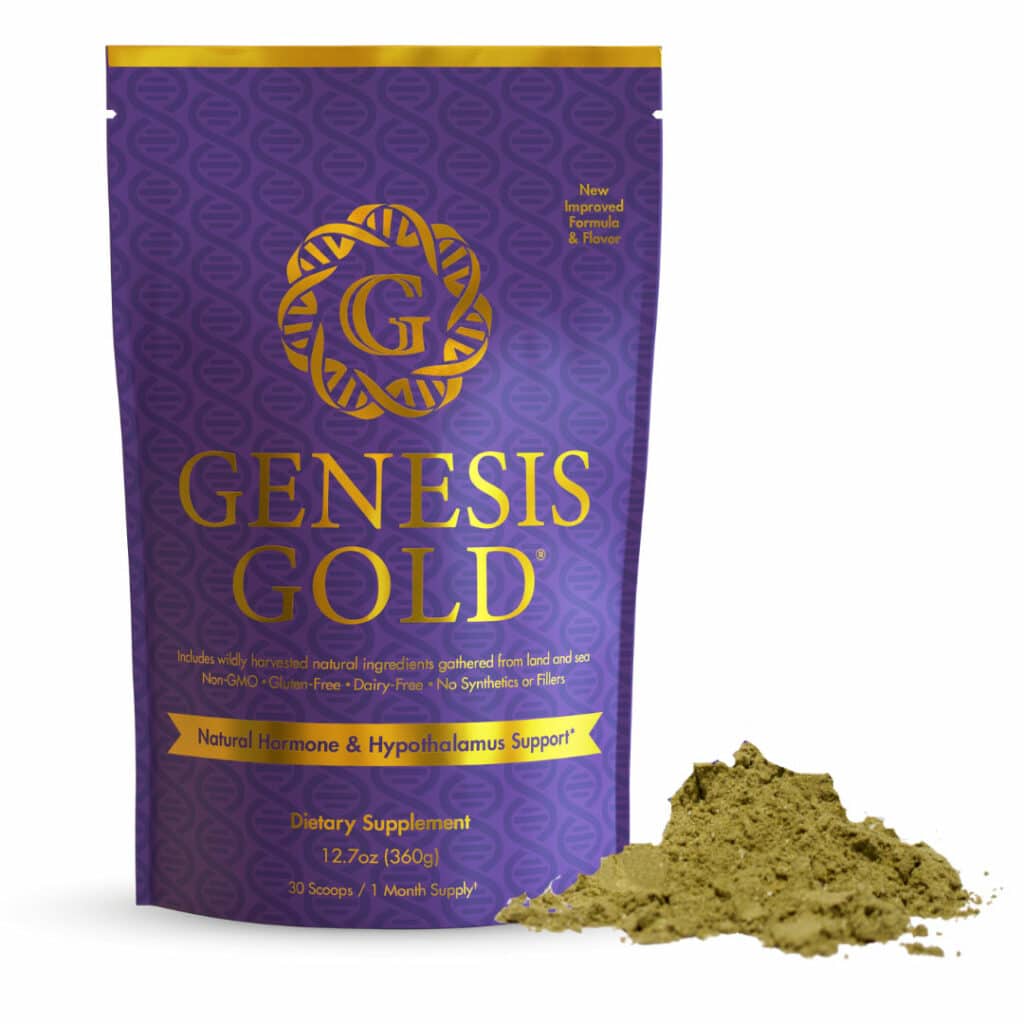If you’re familiar with my work at all, you know that I talk about the hypothalamus a lot. And that’s because it is so important in keeping your hormones in harmony. Your hypothalamus is the master of regulating all of the hormones that your body produces. In order to do that, the hypothalamus acts as an endocrine gland itself and produces hormones.
Your hypothalamus is located in the center of your brain and is made up of neurological tissue. It’s the same kind of tissue that makes up your brain, but these tissues are special. They are what’s called neuroendocrine tissues. These nuclei are giant nerves that can produce hormones.
There are nine hormones that your hypothalamus produces:
- MSH – Melanocyte-stimulating hormone
- CRH – Corticotropic-releasing hormone
- TRH – Thyrotropic-releasing hormone
- GnRH – Gonadotropic-releasing hormone
- GHRH – Growth hormone-releasing hormone
- Somatostatin
- PRH – Prolactin-releasing hormone
- ADH – Anti-diuretic hormone
- Oxytocin
These nine hormones are broken into some big categories. The one I talk about the most is POMC (pro-opiomelanocortin) – a giant 241 amino acid pre-hormone that gets broken down into corticotropin-releasing hormone, melanocyte-stimulating hormone, and beta-endorphins.
MSH (melanocyte-stimulating hormone) helps to control your circadian rhythm. It induces sleep and protects your skin from UV light. It does this with an increase of melanin production. MSH suppresses your appetite, regulates aldosterone which controls saltwater balance, and induces sleep. It also enhances learning and memory, suppresses fever, and regenerates peripheral nerves. MSH is involved in inflammatory and immune responses, as well as sexual arousal.
CRH (corticotropin-releasing hormone) controls your adrenal glands’ production of the stress hormone, cortisol.
TRH (thyrotropin-releasing hormone) induces pituitary TSH (thyroid-stimulating hormone). This stimulates your thyroid to produce thyroid hormones T4 & T3. Which control metabolism and energy production.
GnRH (gonadotropin-releasing hormone) regulates your reproduction and sex hormones. GnRH also induces the pituitary gland to produce FSH and LH.
ADH (antidiuretic hormone) controls your blood pressure. ADH, also known as vasopressin, conserves fluid volume in the blood by suppressing your kidneys’ production of urine and increases your blood pressure.
PRH (prolactin-releasing hormone) induces prolactin production. Prolactin induces REM sleep, modulates the immune system, and milk production. Prolactin is suppressed by the hypothalamus’ production of dopamine.
GHRH (growth hormone-releasing hormone) induces pituitary growth hormone production. Your hypothalamus also produces somatostatin, which inhibits pituitary growth hormone production and TSH.
Oxytocin is produced by your hypothalamus and stored and released by the pituitary gland. It induces social bonding and acts on the breasts to release breast milk and the uterus to induce contraction. Oxytocin also contributes to orgasm.
Besides hormones, your hypothalamus produces many neurotransmitters.
Dopamine is your main neurotransmitter. Dopamine wakes you up in the morning and suppresses prolactin production. It is also your memory and learning neurotransmitter, as well as your motivating neurotransmitter. Dopamine regulates your reward system.
Your hypothalamus also produces acetylcholine and several other neurotransmitters that regulate brain function, including GABA and glutamate. GABA is the fast-acting calming neurotransmitter, and glutamate is the fast-acting excitatory neurotransmitter. Your hypothalamus controls your autonomic nervous system.
Because your hypothalamus produces so many hormones that direct so many vital functions in your body, it’s very important to take good care of your hypothalamus.
First, you can focus on taking care of your hypothalamus by feeding it nutritious foods. This means healthy fats, adequate protein, and colorful fruits and vegetables for lots of antioxidants.
The best way to support hypothalamic function is to use supplementation. I created Genesis Gold® because full hypothalamic supplementation was not available when I was seeing so many patients with hypothalamus dysfunction in the late 90’s. Genesis Gold® provides your hypothalamus with the precise amino acids to optimize hypothalamic function and allows your hypothalamus to produce the hormones to regulate all of your body systems.
Genesis Gold® provides a wide variety of vital nutrients from whole plants that provide your hypothalamus with the cofactors and micronutrients necessary to produce and safely metabolize hormones. The phytonutrients in Genesis Gold® help nourish cell receptor sites, so your body is more responsive to its own hormones. The herbal blend in Genesis Gold® helps your body detoxify external toxins that would interfere with hypothalamus function, as well as your own cellular toxic waste.
One of the most important things you can do to really help your hypothalamus is to try and live as clean a lifestyle as possible.
Because your hypothalamus is not protected by the blood-brain barrier, it’s exposed to toxins and viruses, and anything else floating around in your blood. This means making sure that you’re eating organic foods, being careful to not expose yourself to toxins in your occupation or environment, and supporting yourself with supplements like Genesis Gold® to help you detoxify.
If you have any questions about your hypothalamus and the hormones that your hypothalamus produces, why don’t you join us in our Hormone Reboot Training, where you’ll get access to our free support group.
Learn more + get healthy with Genesis Gold® here.

Research Reference: The Interrelationship Between Serum Pituitary Hormones in Healthy Adults, Hypothalamus-pituitary-adrenal axis in glucolipid metabolic disorders, Hypothalamus regulation of sleep and arousal, The Role of Circulating Amino Acids in the Hypothalamic Regulation of Liver Glucose Metabolism.
*Statements not reviewed by the FDA.



Thank you for helping me to better understand the hypothalamus
This is the first scientific article I came across in de last 2 decades about the hypothalamus that describes all its functions. Here we are confronted by REAL science! Thank you SO much!